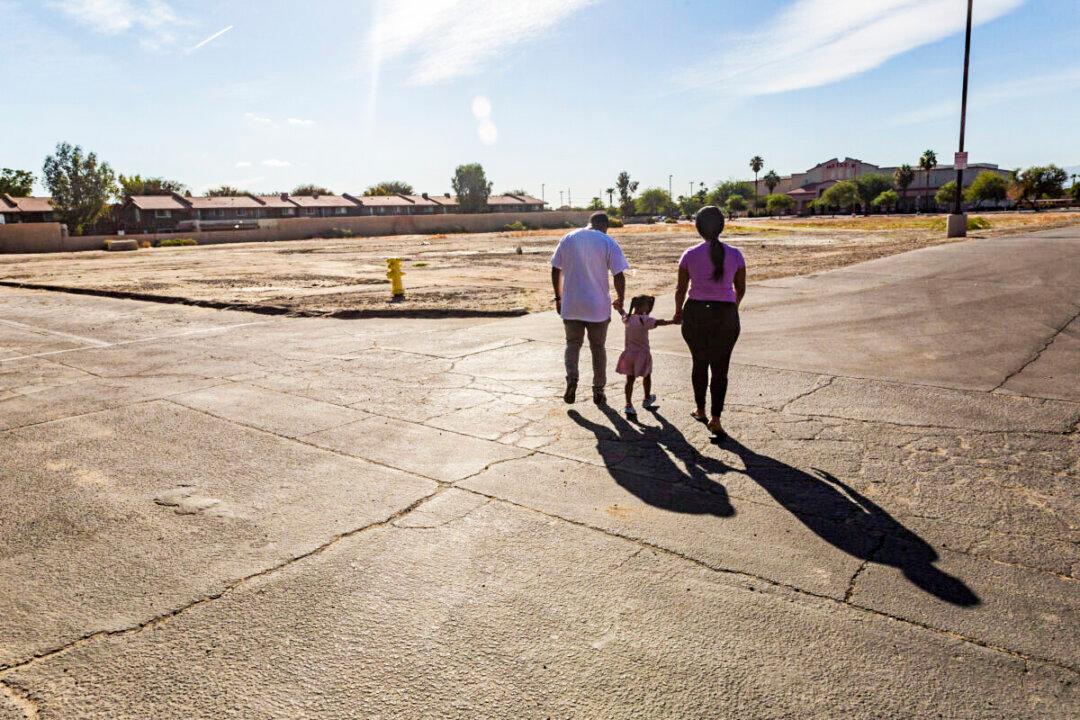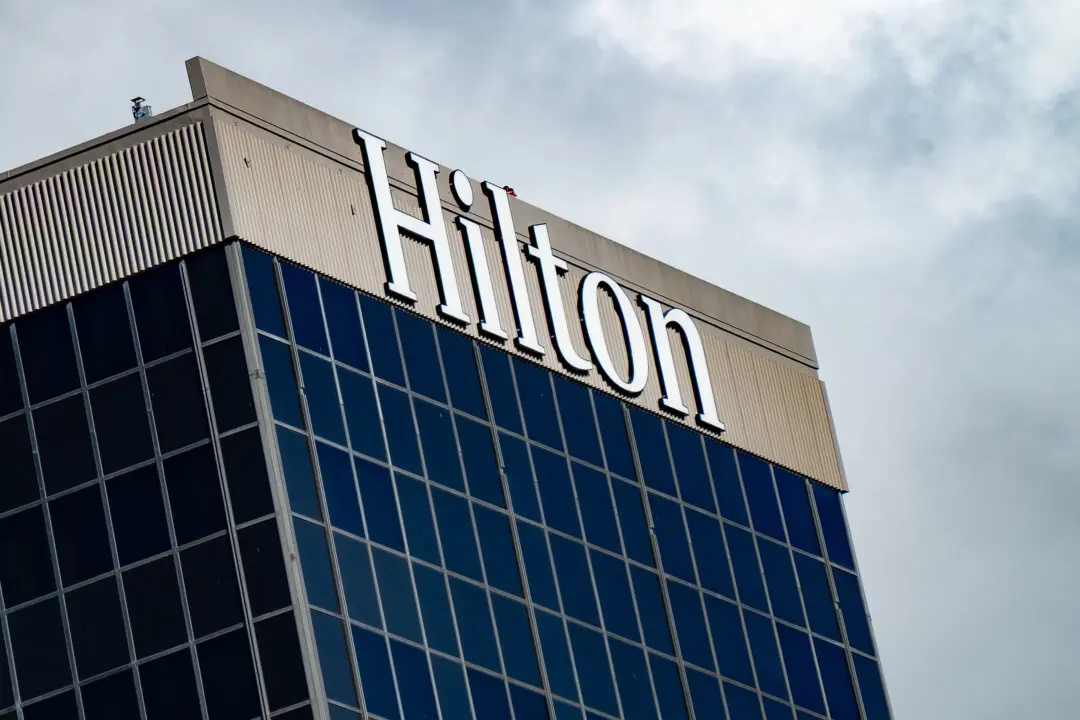Just before dawn, erratic wind gusts whirl sand and dust into the crisp October air in Coachella Valley as a pair of tinted-window tour buses pull into a cul-de-sac at the United States Border Patrol station in Indio, Calif.
The buses park strategically obscuring the entrance to a compound whose pale-yellow walls are crowned with barbed-wire rails. Moments later a crowd of migrants gathers in the narrow space between the gate of the compound and the buses where an official holding a clipboard waits at a portable table.





